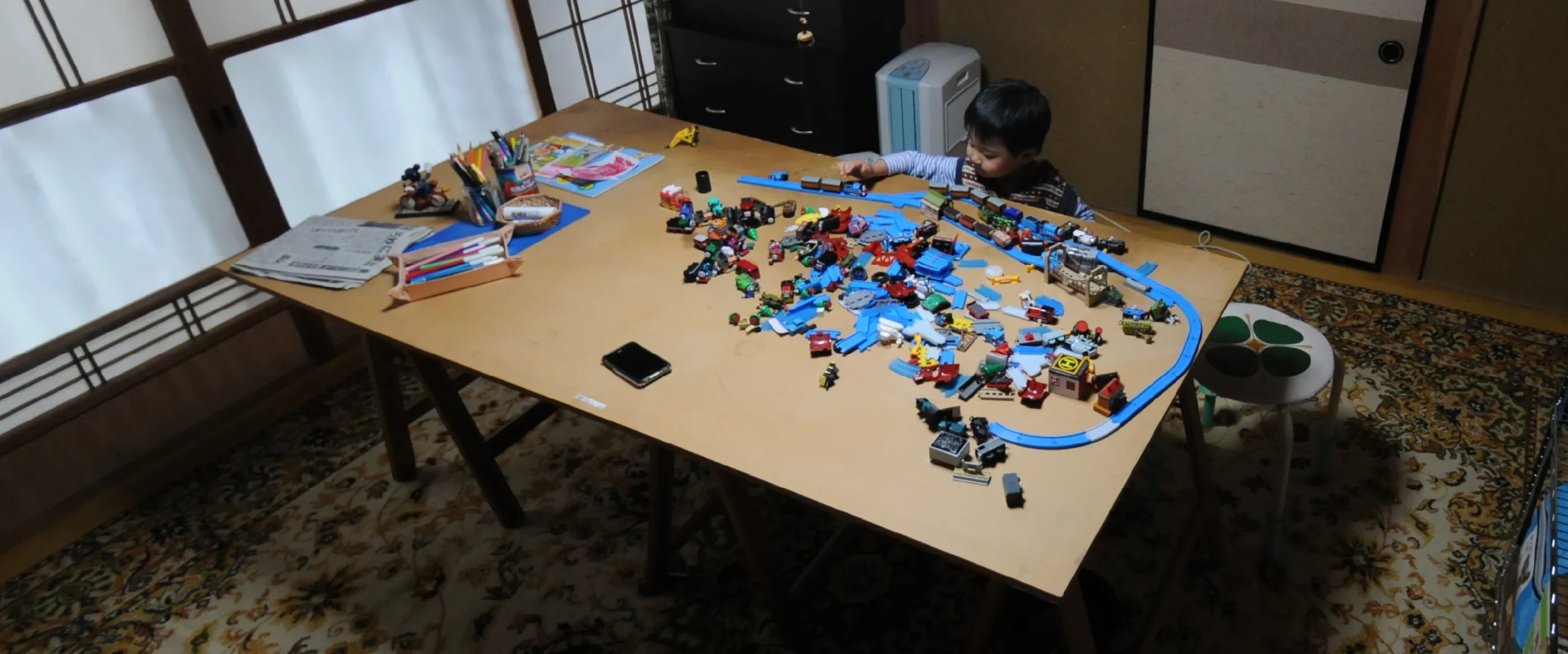今日日 CD にプレミアがつくなんて不思議な感覚にとらわれてしまうものですが、そもそも CBS 配給になっていた Bang Records からリリースされるべく 1981 年(1979 年という説もあり)に $65,000 を費やしてレコーディングされつつもお蔵入りになってしまったこのアルバムをこさえた Bridge というグループは、Vitamin E という Norman Connors がプロデュースしたアルバムを唯一作としたバンドの「前身バンド」ではありません。 Vitamin E の Sharing は 1977 年のリリースであり、Norman Connors の奥様がネーミングした Vitamin E というグループ名を嫌ったバンドが心機一転を図ったのが Bridge なのだそう。
それにしてもこのモダンなソウルはどうだろう。 明らかに Vitamin E の Sharing から発展しているし(余計なお世話ですけどこれだって相当な佳作だし、Norman Connors はいい仕事をしています)、発掘されたのが 1999 年ということでそのころの録音なのかと見間違えるくらいの出来栄えなんです。
バンドはレーベルと衝突し、内部でも崩壊をきたして消滅してしまうのですが、後年こうやって発掘されて本当に良かった。 首謀者の Paul Tillman Smith もさぞや喜んだことでしょう。 それもしても CD にプレミアが付くなんておかしな話だ。 いまだったら配信で聴けるし、音源として持っていたいのならば bandcamp にあるって話ですよ。
Considering the quality of the vocalists, instrumentalists, and songwriters who comprised Bridge, the Oakland/Berkeley, California septet should have been big. Dissension within the group and conflicts with producers doomed the band, which spent four weeks in Boulder, Colorado in 1981 cutting an album for Ilene Berns’ CBS distributed Bang label that never saw the light of day. Now, after nearly 20 years in mothballs, comes a collection of the demos that helped the group land the Bang deal. These selections reveal a sophisticated fusion of soul, jazz, rock, and latin elements that placed Bridge well ahead of its time.
Bridge evolved from Vitamin E, a short-lived band that cut a terrific album for Buddha in 1977 titled Sharing. Produced by Norman Connors, the disc featured the male/female vocal frontline of David Gardner and Lady Bianca, with Oakland soul veteran Freddie Hughes (best known for his 1968 hit "Send My Baby Back ») contributing his multi octave pipes to the title track.
Leader and drummer Paul Tillman Smith supplied the songs. Born in Oakland in 1947, Smith has an impressive list of sideman credits, including work with Jimmy McCracklin, Lightnin’ Hopkins, Sonny Simmons, and Michael White. Although he considers himself primarily a jazz drummer, he began writing pop songs in the early 70’s as another creative outlet. Smith’s tunes have been recorded by such artists as Cold Blood, Norman Connors, Pharaoh Sanders, Phyllis Hyman, Jean Carne and Webster Lewis.When Sharing failed to have much commercial impact, the group began falling apart. Gardner quickly lost interest, and Bianca left to work with Sly Stone, then Frank Zappa. Finding a replacement for Gardner was easy. Smith turned to Freddie Hughes’ 18 year old son Derick, whose previous experience had been confined largely to church but whose vocal virtuosity rivaled that of his father. Locating a female vocalist was harder. Smith had been hearing about Debravon Lewis for a couple of years but had been unable to locate her. « Everybody was telling me she could sing, so I knew she was the one", Smith recalls. « I hadn’t even heard her. I take musicians’ words for things. When I finally heard her, I said, ‘Yeah, she’s badd, but how does she sound on tape?" Lewis turned out to be, in Smith’s estimation, "One of the finest recording vocalists".
Another key new member was percussionist and songwriter Jon Bendich, who was only 21 at the time he joined, but had already spent two years on the road as a member of keyboardist Rodney Franklin’s band. Smith and Bendich formed a production company and began working on the demos contained on this CD. Completing the core group were keyboardist Michael Robinson, guitarist Pat Duffey and bassist Adrian Barrios. Freddie Hughes remained a peripheral member and herein offers a tour de force reading of "Listen", a Smith composition later covered by Norman Connors.
Smith hated the name "Vitamin E", which Connors’ wife had picked. With the new line-up in place, Smith and Bendich came up with their own. "Bridge was a conscious name choice", Bendich explains. "We were trying to bridge all styles and markets, we were trying to be universal, like Earth, Wind & Fire or Stevie Wonder".
Bridge spent two years playing around the San Fransisco Bay Area before landing a deal with Bang Records. An ongoing after hours engagement at Ivey’s in Oakland often featured Smith’s friend Pharaoh Sanders as a member of the band.The Bang deal proved to be Bridge’s undoing. Arguments over money broke out on the flight to Boulder. After their arrival, Smith and Bendich discovered that they weren’t going to get to produce the album themselves. Engineer Dwayne Scott and Malaco studio drummer turned, Nashville producer James Stroud had been tired for the task. "They didn’t make any real effort to accommodate us" Bendich says of the producers. "It was like, we know how to make records, and you guys sit back and take notes". Before the project was completed, most members of Bridge had been sent back to Oakland. The producers brought in keyboardist Barry Beckett, guitarist Jimmy Johnson and bassist David Hood in from Muscle Shoals to complete the project, Stroud played drums himself.
Although Bang had spent $65,000 on the Bridge album, it was never released. The band soon collapsed, though Rosie Gaines filled in for Lewis briefly. Lewis changed her name to Fizzy Qwick and recorded an album with a group called Tiggi Clay for Motown’s Morocco subsidiary in 1984 and an album of her own for Motown proper two years later before abandoning music. Derick Hughes went on to sign with both Motown and Prince’s NPG label, but nothing was ever released. Today he spends much of his time with various touring gospel musical theatre productions. "Derick was amazing, like a young Donny Hathaway, so spiritual, so pure!" Bendich says of Hughes’ performances on disc, "And Debra had a way of letting her vulnerability come through. When we were producing her in the studio, you felt everything that she was singing. There wasn’t any faking, and the tone that she had, Debra would make us cry!".
Now, at long last, the world can hear Bridge the way Smith and Bendich intended in the first place.
Lee Hildebrand
Oakland, Carlifornia
July 1999
